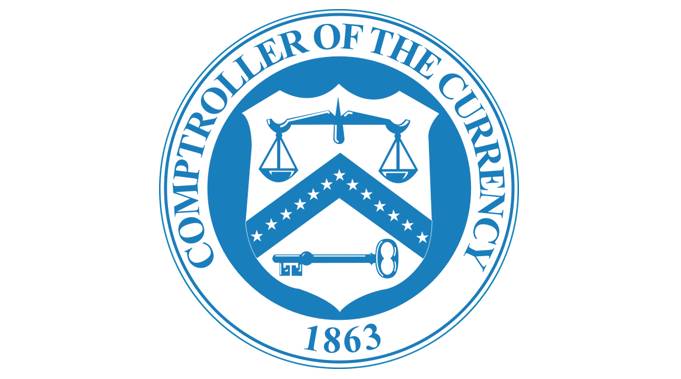WASHINGTON—The Office of the Comptroller of the Currency (OCC) today published a letter clarifying national banks' and federal savings associations' authority to provide cryptocurrency custody services for customers.

National and state banks and thrifts have long provided safekeeping and custody services, including both physical objects and electronic assets. The OCC has specifically recognized the importance of digital assets and the authority for banks to provide safekeeping for such assets since 1998. In the letter published today, the OCC concludes that providing cryptocurrency custody services, including holding unique cryptographic keys associated with cryptocurrency, is a modern form of traditional bank activities related to custody services. Crypto custody services may extend beyond passively holding "keys."
"From safe-deposit boxes to virtual vaults, we must ensure banks can meet the financial services needs of their customers today," said Acting Comptroller of the Currency Brian P. Brooks. "This opinion clarifies that banks can continue satisfying their customers' needs for safeguarding their most valuable assets, which today for tens of millions of Americans includes cryptocurrency."
The OCC also recognizes that, as the financial markets are increasingly digitized, the need will increase for banks and other service providers to leverage new technology and innovative ways to serve their customers' needs. By doing so, banks can continue to fulfill the financial intermediation function they have historically played in providing payment, lending, and deposit services.
Today's opinion applies to national banks and federal savings associations of all sizes and is consistent with a number of states which have already authorized state banks or trust companies to provide similar functions.
Media Contact:
Bryan Hubbard
(202) 649-6870
About OCC:
The Office of the Comptroller of the Currency (OCC) is an independent bureau of the U.S. Department of the Treasury. The OCC charters, regulates, and supervises all national banks, federal savings associations, and federal branches and agencies of foreign banks.
Why is this good?
As with cash, however, it would be foolish to imagine a future where every person holds their entire life-savings directly in a wallet they personally control. There will always be a need for safekeeping of large amounts and there will always be a need for large, liquid marketplaces to exchange digital cash for other assets. Multi-sig wallets and decentralized exchanges may, one day, make these safekeeping and exchange services less dependent on centralized entities, but full decentralization is probably an unattainable utopia (and maybe even an undesirable one).
Peter Van Valkenburgh - coincenter